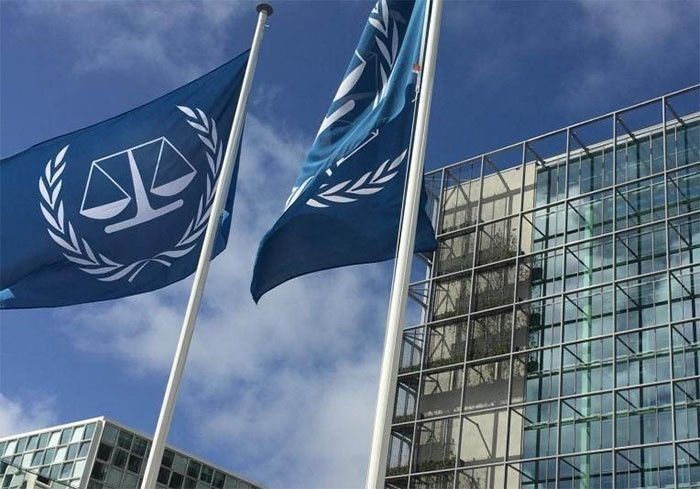ICC prosecutor vows to uncover truth in Duterte 'war on drugs'

'In the face of non-cooperation of Philippine officials'
MANILA, Philippines — In the face of Philippine government officials insisting on non-cooperation with international probers, International Criminal Court Prosecutor Karim Khan vowed to uncover the truth in President Rodrigo Duterte’s bloody “war on drugs.”
In a statement late Thursday night (Manila time), Khan issued a statement weeks after the ICC’s Pre-Trial Chamber approved his office’s request to launch an investigation into allegations of crimes against humanity in the Philippines.
“My investigation will seek to uncover the truth and aim to ensure accountability. We will focus our efforts on ensuring a successful, independent and impartial investigation,” Khan said.
Khan also asserted that, as affirmed by the Pre-Trial Chamber, his office’s investigation will cover alleged crimes in the country from November 2011 to March 2019, when the Philippines’ withdrawal took effect.
The probe will also cover alleged killings in Davao City between 2011 and 2016, when he was in the local government of the southern Philippine city.
The Duterte government has been adamant about insisting that the ICC has no jurisdiction over the country. Officials have also maintained that they will not cooperate with international probers.
But Khan said that his office remains” willing to constructively engage with national authorities in accordance with the principle of complementarity and our obligations under the Statute,”
The ICC prosecutor also said he will count on the cooperation of States Parties, civil society and other partners so it may give justice to victims and affected communities.
Khan added: “I equally look forward to exploring opportunities for greater engagement and dialogue between my Office and the Asia-Pacific region.”
RELATED: After announcing retirement from politics, Duterte says he will prepare defense for ICC probe
Difficulties in investigation
Retired ICC Judge Raul Pangalangan earlier said that the international tribunal can employ alternative ways to gather evidence in its investigation.
Social media posts may be used, and the ICC may also fly witnesses to The Hague. Online mechanisms can be used too if the investigator cannot physically come to the country.
Even before the PTC approved the request of the ICC’s Office of the Prosecutor for a full investigation, witnesses as well as kin of "drug war" victims have also been submitting their testimonies to the tribunal.
The OTP, in what has been called former Prosecutor Fatou Bensounda’s valedictory, noted that the office is "[a]ware of the complex operational challenges" that they will face if their request for the probe is approved.
“[W]e have also been taking a number of measures to collect and preserve evidence, in anticipation of a possible investigation,” she added.
President Rodrigo Duterte says the controversial drug war will continue until the last day of his term, with or without a communication filed at the International Criminal Court.
Duterte: It does not mean that there are dead persons we will stop the campaign against drugs @PhilippineStar @PhilstarNews
— Alexis B. Romero (@alexisbromero) February 26, 2018
The ICC recently announced that it has begun processing the accusations against Duterte and his campaign against illegal drugs, which has led to the killing of thousands of people since he assumed power in June 2016. — Photo of the ICC building by AP/Peter Dejong
Vice President Sara Duterte issues a curt response to the ICC’s decision to resume its probe on the drug war killings under her father former President Rodrigo Duterte: “No Comment.” — Cristina Chi
The Philippine Coalition for the International Criminal Court (PCICC) expresses its elation over the recent decision of the International Criminal Court (ICC) Appeals Chamber, which firmly rejected and dismissed the Philippine government's appeal to halt the investigation into the Philippine situation.
"We have been waiting for this decision. The families of victims of the war on drugs have long been waiting for justice," the PCICC says.
"As of now, many of the victims and families who suffered and continue to suffer due to the brutal war on drugs pin their hopes on the ICC as the only credible venue for justice," it adds.
A human rights group has expressed its satisfaction with the recent decision of the International Criminal Court (ICC) to reject the Philippine government's attempt to halt the investigation into drug war-related killings in Davao City and during former President Rodrigo Duterte's regime.
"It is high time that the ICC investigation proceeds without a hitch so that the victims of Duterte’s bloody anti-drug war can finally tread the road towards justice and accountability," Karapatan says.
"There is urgent need for international mechanisms such as the ICC to come in because all domestic investigation mechanisms presented by the Duterte and the current Marcos regimes in response to calls for justice and accountability are ineffective and only meant to window-dress the current dire human rights situation," it adds.
International Criminal Court Appeals Chamber rejects Philippine government's appeal, allowing the resumption of the investigation into alleged crimes against humanity committed in relation to the so-called drug war and Davao death squad killings. — The STAR/Janvic Mateo
President Ferdinand “Bongbong” Marcos Jr. says the Philippines “cannot cooperate” with the International Criminal Court as he raised “questions about their jurisdiction and about what we consider to be interference and practically attacks on the sovereignty of the republic.”
With the rejection of the ICC’s Appeals Chamber of the Philippines’ request to suspend probe into “war on drugs,” Marcos says “that ends all pur involvement with the ICC.” — The STAR/Alexis Romero
- Latest
- Trending





























